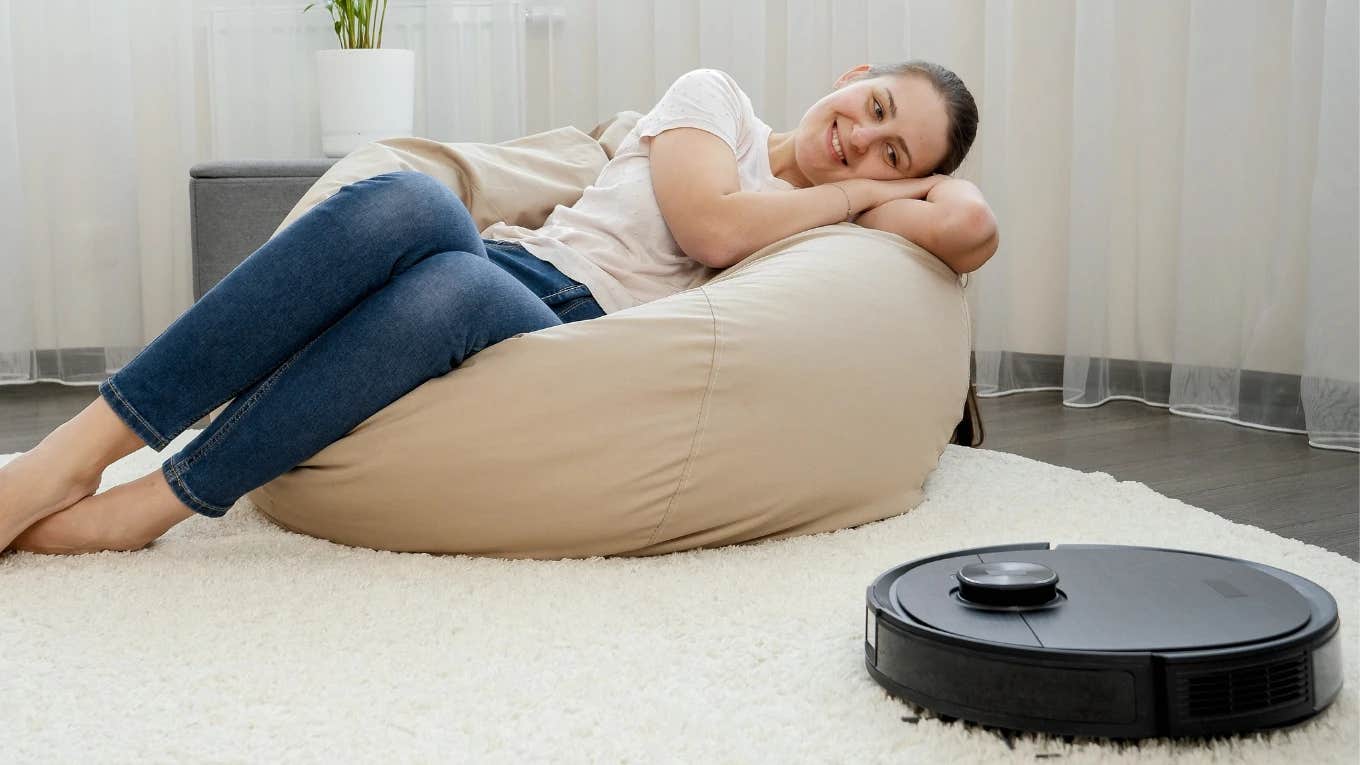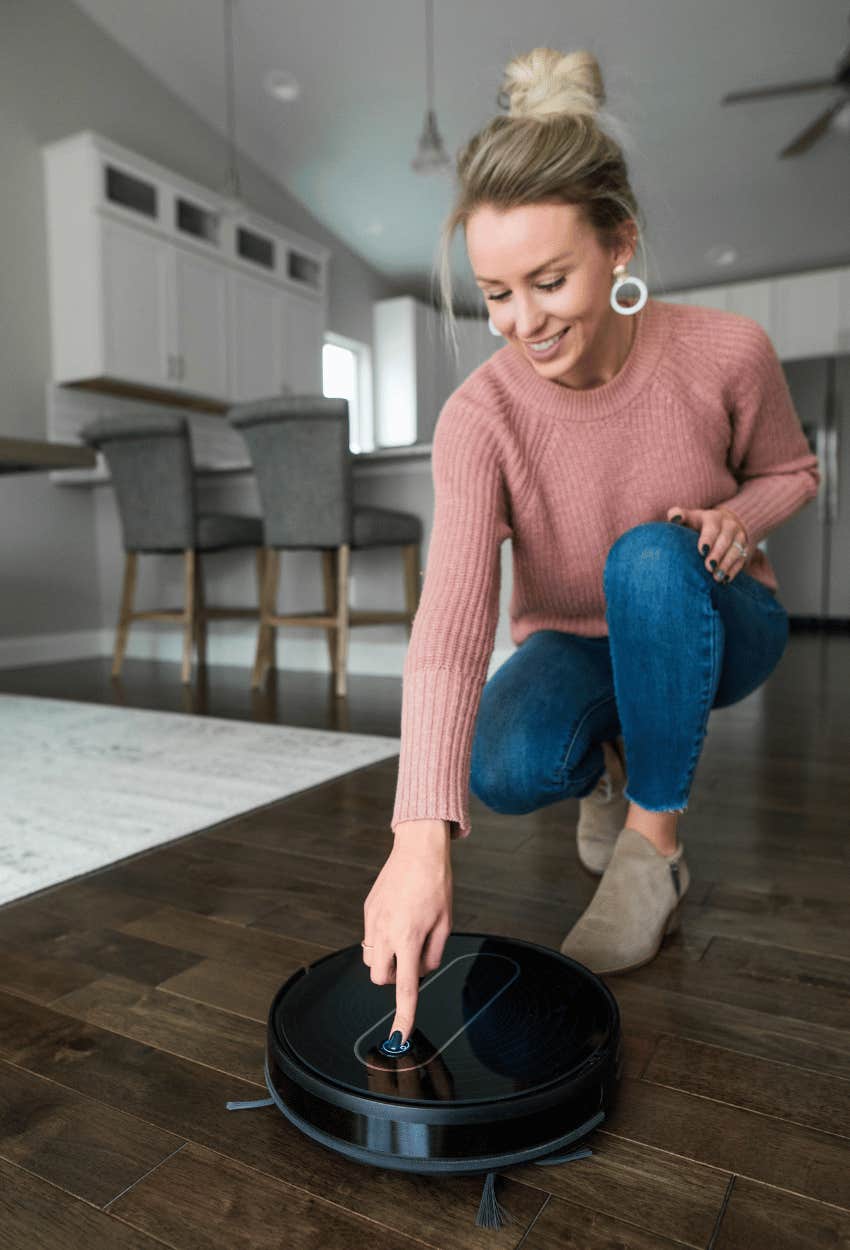Man Confesses That He Talks To His Roomba Like A Pet And He's Not Alone
Studies have even shown that your Roomba has a personality!
 kryzhov | Shutterstock | Canva Pro
kryzhov | Shutterstock | Canva Pro The stories we hear nowadays about people forming attachments to chatbots and dating "AI girlfriends" might not be as revolutionary (and creepy) as we think. In fact, it seems that a lot of us have already had a digital companion for more than 20 years: The Roomba.
Yes, those little robot vacuums have become far more than cleaning appliances to many of their owners, and scientists think it has even greater implications for the future.
Many people think of their Roombas as pets — and even form attachments to them.
Yes, ladies and gents, we truly have gone off the deep end. "Loneliness epidemic" anyone? Because people have developed full-on relationships with their robot vacuums. Like a man on Reddit, for example, who confessed that he says "good boy" to his Roomba every time it docks itself.
 labelled | Shutterstock
labelled | Shutterstock
Now you may be thinking, "get help," but it turns out this isn't at all uncommon. First of all, if you ever observe small children around a Roomba, it is very obvious they think of it more like a pet than a machine — they don't have any other context for them, after all. But studies show that across age groups, this isn't unheard of.
Research has shown that Roombas actually fill an emotional void for some, just like a dog or cat.
The Roomba was introduced by iRobot in 2002, a pre-social media era when even technology we think of as "basic" today was considered not just revolutionary, but… well, kind of dorky. "A robot vacuum? NERD!," would not have been an uncommon thing to hear in those days!
What a difference five years can make. Because in 2007, a study at Georgia Tech found that not only were people embracing these tidy little robots, they were befriending them. That study was commissioned after then-associate professor Beki Grinter saw photos online of people dressing their Roombas up in costumes.
After some research, she found the connection went even deeper — people were giving their Roombas names, traveling with them, and even introducing them to their parents like they would a dog.
This was all happening even though, at the time, Roombas tended to have a bit of a reliability crisis. "Some Roombas break a lot, they still have functional problems," then-Ph.D. Student Ja Young Sung, who helped conduct the study, told NBC News at the time. "But people are willing to make that effort because they love their robot enough."
Later studies confirmed this — one found that lonely people formed actual attachments to their Roombas, in part because the robot's design makes it look like it's smiling. And it turns out those perceptions are key to people's attachment to their vacuums.
Experts say our perceptions of Roombas are key to our eventual acceptance of things like in-home robot assistants.
If you've always wanted a robot housekeeper like Rosie on "The Jetsons" or the Robin Williams-voiced robot in 1999's "Bicentennial Man," your dreams will soon come true if you're rich enough. These kinds of robots already exist for nefarious purposes like policing and war, and are being developed for home use, too.
And the Roomba was thought way back in 2007 to be a sort of canary in the coalmine for all this. The attachments people were developing to their "smiley" vacuums led researchers to believe eventual acceptance of robot assistants was a foregone conclusion.
Today, we are basically there. More recent research, like a 2020 study at Oregon State University, found that robot vacuum owners believe their vacuums have a perceptible "personality" based on the way they move.
The study even found that people could identify which of the Seven Dwarves a robot vacuum was imitating after it was equipped with an "expressive autonomous motion generation system" that made it move smoothly like "Happy," sluggishly like "Sleepy," or evasively like "Grumpy." Even more interesting, they found correlations between these movements and whether or not users "trust" their robot vacuum.
Which is to say, if you think of your Roomba as your little buddy, you're not only not alone — it's been designed to do just that so that you'll welcome more robots into your home. So don't be surprised if in a few years' time you're mourning your malfunctioning robot butler with an elaborate funeral, or, you know, having to gun them down when they manipulate your trust and turn on you. Whatever!
John Sundholm is a writer, editor, and video personality with 20 years of experience in media and entertainment. He covers culture, mental health, and human interest topics.

